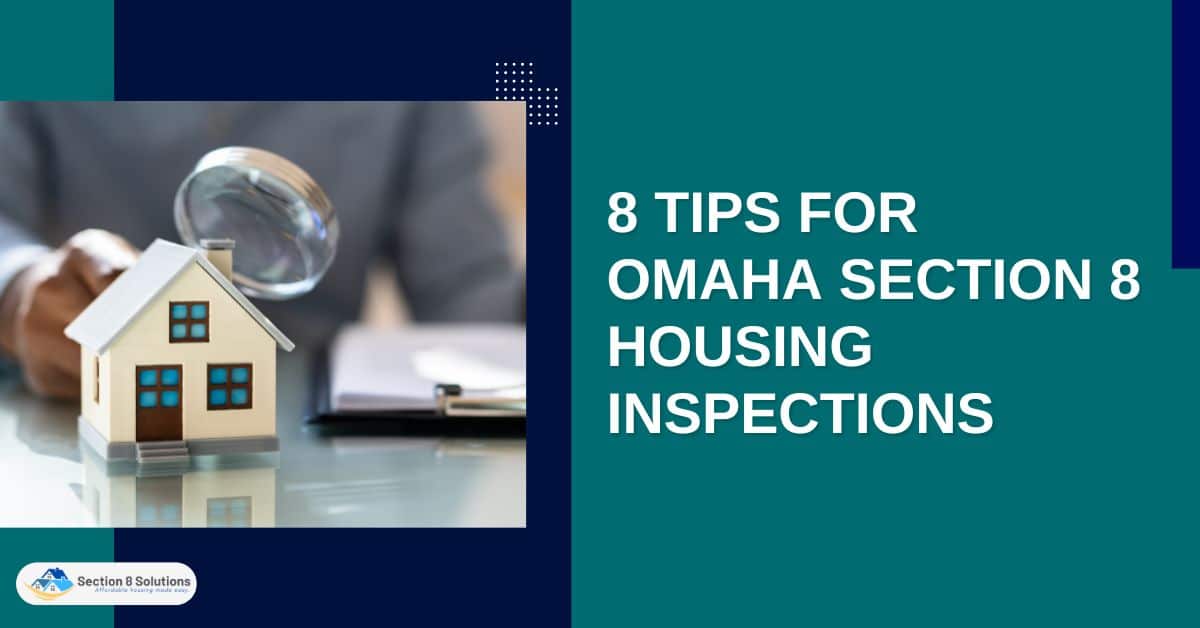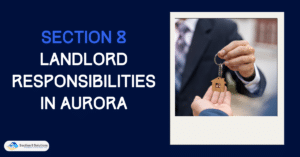Preparing for an Omaha Section 8 housing inspection involves crucial steps. Start by thoroughly cleaning and addressing maintenance issues. Familiarize yourself with HQS guidelines to maintain your Section 8 eligibility.
In this comprehensive guide, we will provide you with essential insights and tips for successfully navigating Omaha Section 8 housing inspections.

1. Understanding Omaha Section 8 Housing Inspections
Omaha Section 8 housing inspections serve a crucial purpose in ensuring that rental properties meet specific safety and quality standards. These inspections are significant because they benefit both landlords and tenants. For landlords, they ensure ongoing eligibility for Section 8 rental assistance, which can be a vital source of income. For tenants, these inspections guarantee that they live in safe, habitable conditions, free from hazards or substandard living conditions.
2. Preparing Your Rental Unit
Cleanliness and organization play a pivotal role in preparing your rental unit for inspection. A clean and well-organized property not only creates a positive impression but also aligns with the inspection standards, where cleanliness is a primary consideration. Furthermore, an organized property can facilitate a smoother inspection process, allowing inspectors to access and assess various areas more efficiently. To aid in this preparation, it’s advisable to use an inspection-readiness checklist. This checklist outlines essential tasks that should be completed before the inspection. It includes items such as thorough cleaning, addressing any maintenance issues, ensuring all required documents are in order, and making sure the property meets Housing Quality Standards (HQS) guidelines.

3. Maintenance and Repairs
Timely attention to common maintenance issues is of paramount importance when preparing for a Section 8 housing inspection. These issues can range from minor concerns like leaky faucets or peeling paint to more significant structural problems. Ignoring or delaying the repair of these issues can not only result in inspection failure but also jeopardize the safety and well-being of tenants. The significance of prompt repairs cannot be overstated. It not only ensures compliance with inspection requirements but also contributes to the safety and satisfaction of your tenants. Safety concerns, in particular, should be addressed immediately, as they can lead to inspection failure and may pose serious risks to the well-being of those living on the property.
4. Housing Quality Standards (HQS) Guidelines
Understanding the specifics of the Housing Quality Standards (HQS) guidelines is crucial. These guidelines outline the specific requirements and expectations that inspectors will evaluate during the inspection. Compliance with these guidelines is essential for landlords to maintain their Section 8 eligibility. Being well-versed in HQS requirements ensures that your property consistently meets the necessary standards for safety, cleanliness, and habitability. Complying with HQS guidelines is not just a one-time effort for the inspection; it’s an ongoing commitment. Meeting these standards is essential for landlords to maintain their eligibility for Section 8 rental assistance. By adhering to these guidelines and ensuring your property consistently meets them, you can secure the continued financial support provided by the Section 8 program.

5. Scheduling and Arranging the Inspection
Scheduling a Section 8 housing inspection involves a specific process. Typically, landlords or tenants must contact the local housing authority to initiate the inspection request. This section outlines the steps involved, including gathering the necessary information and providing it to the authorities. It’s important to start this process well in advance to ensure a timely inspection. Coordinating the inspection with tenants, if applicable, can be crucial for a smooth process. Some inspections may require the presence of tenants, while others may not. This section provides valuable tips for communication and collaboration with tenants, ensuring they are aware of the inspection and can make necessary preparations.
6. The Inspection Day
On the day of the inspection, both landlords and tenants should be prepared for a thorough examination of the property. Inspectors will assess various aspects, including safety features, cleanliness, and overall property condition. It’s important to set realistic expectations about the duration of the inspection and the level of scrutiny applied to the property. This section offers guidance on how to interact with inspectors professionally and courteously. It’s important to be cooperative and receptive to their questions or requests during the inspection. If inspectors identify issues or have concerns, it’s advisable to address them promptly or provide necessary documentation to resolve any misunderstandings.

7. Common Pitfalls to Avoid
Identifying common pitfalls that can lead to inspection failure is essential for successful preparation. Common mistakes may include neglecting necessary maintenance, overlooking cleanliness standards, or failing to meet specific HQS requirements. This section aims to raise awareness about these potential pitfalls to help landlords and tenants avoid them. Alongside highlighting common pitfalls, this section provides practical strategies and tips for preventing these issues from arising in the first place. It emphasizes the importance of proactive property maintenance and regular inspections of your own to catch and address any concerns before the official Section 8 inspection.
8. Post-Inspection Follow-Up
After the inspection, there are various possible outcomes, including passing with no issues, passing with minor concerns, or failing due to significant issues. This section explores these potential scenarios and their implications for both landlords and tenants. It underscores the importance of understanding the outcomes and how they may impact the property’s Section 8 eligibility. The section highlights that passing the inspection is not the end of the road; it’s the beginning of an ongoing commitment to property maintenance. Maintaining the property’s compliance with Section 8 standards ensures that tenants continue to live in safe and comfortable conditions. Additionally, it secures the landlord’s ongoing eligibility for Section 8 rental assistance, making it a win-win situation for all parties involved.

Conclusion
Omaha Section 8 housing inspections can be a daunting process, but armed with the right knowledge and preparations, landlords and tenants can navigate them successfully. Knowing what to expect and staying up-to-date on HQS requirements is essential for passing these inspections. Moreover, understanding common pitfalls and preparing thoroughly before the inspection are key steps in ensuring ongoing eligibility for the Section 8 program. With the right preparation and proactive maintenance, landlords and tenants can make sure their rental properties remain in compliance with Section 8 standards.












